- From Faith Current: “The Sacred Ordinary: St. Peter’s Church Hall” - May 1, 2023
- A brief (?) hiatus - April 22, 2023
- Something Happened - March 6, 2023
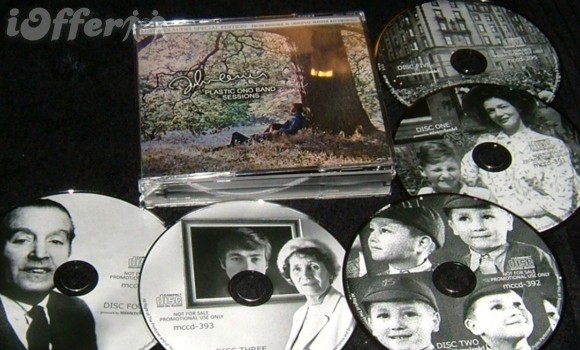
More POB than you can shake a stick at, if that’s your thing
(The title’s a shout-out to the dear departed National Lampoon — where John and Yoko hung around a bit in their Bank Street days, and which ran an entire Beatles-themed issue in October 1977.)
In a discussion with commenter @Rob this morning, I realized that I had stronger feelings about John Lennon’s first solo album than I realized. I admire it as a piece of work, but can’t remember the last time I listened to it; and always find it a bit unpleasant when I do. Rob, on the other hand, seems to admire Plastic Ono Band without reservation. I wondered if others of you have strong feelings pro or con, hence this post.
To me, John Lennon/Plastic Ono Band relies too greatly on the precise circumstances of the artist’s life — John’s tumultuous childhood and recent split from the Beatles — to be a truly great piece of art. I suspect you could level the same critique at all of John’s work post-Yoko; it’s precisely what he was trying to do, but turns out not to have created as much top-rank work as his earlier, more craft-based approach. The album is fascinating in the same way “Lennon Remembers” is fascinating; and is limited in the same ways, too.
What do you think? Is it an album you play often? Does it speak to you, and if so, how?

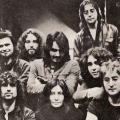
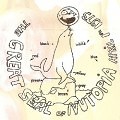

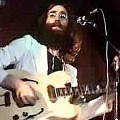
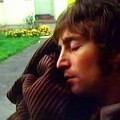
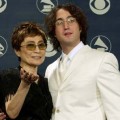
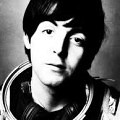
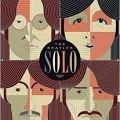
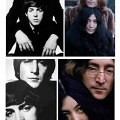
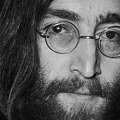
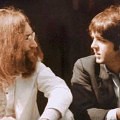
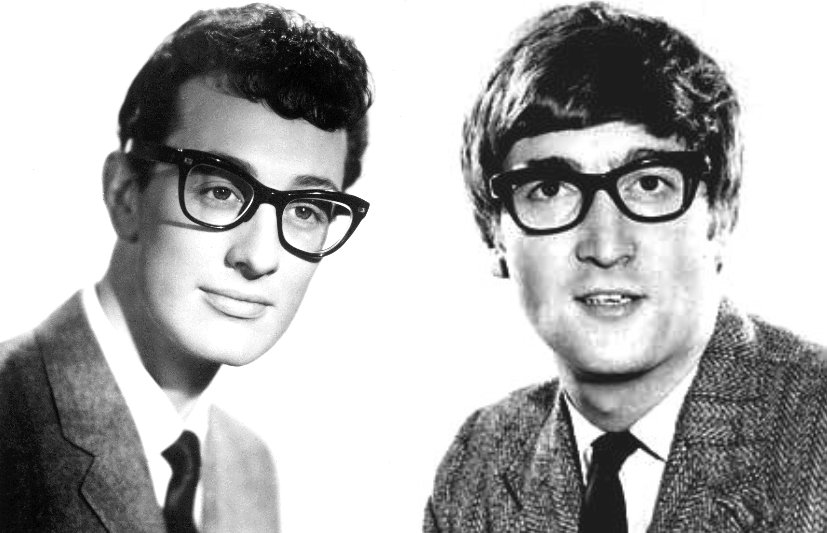
, John Lennon/Plastic Ono Band relies too greatly on the precise circumstances of the artist’s life — John’s tumultuous childhood and recent split from the Beatles — to be a truly great piece of art. I suspect you could level the same critique at all of John’s work post-Yoko; it’s precisely what he was trying to do, but turns out not to have created as much top-rank work as his earlier, more craft-based approach.
My thoughts exactly. I’ve always felt this way about a lot of John’s solo work. It’s too literal. That’s why I prefer his Beatles era work and I tend to listen more to Paul’s solo music. However there is room in my musical heart for all music so I embrace all of it….or rather, most of it. I was just listening to my Lennon playlist ( something I don’t often do) yesterday and I commented to my son how beautiful his solo music was. Sometimes ‘literal’ can hit the spot especially from someone as talented as John. As for POB I always have enjoyed it but I was also aware of it’s limits. I tend to enjoy music on a basic level anyway. Meaning I listen to it for its own sake, I.e. melody, chords, instruments, vocal range. I Found Out has a cool bass line.
Mike, I love this album but I can see what prevents you (and others) from embracing it. Despite some pretty melodies and some of John’s sweetest vocals, there’s something unpleasant at the heart of it. We all know what that unpleasantness is, and you’re forced to take it in with the first line of lyric, even the first sound–those doom-sounding bells. Normally I don’t care for art that’s so explicitly autobiographical/confessional, but JL gets points for being away ahead of the ’70s curve on that, plus for mixing up his musical palette more than on any other solo album. The dynamic range between the rockers is really pretty remarkable for an artist who limited himself so badly as a soloist, in pursuit of stunted notions of, first, immediacy and truth, and later, Yoko worship. “I Found Out” and “Well, Well, Well” are the very sound of tooth and claw. “Look at Me” and “Love” are as finely realized as any White Album ballad. The interior snapshots, however self-dramatizing and self-aggrandizing (“Working Class Hero” and “My Mummy’s Dead”), are also unflinching. It’s not the kind of album you can do twice, but if you do it once and you do it right, it’s irreducible and irreplaceable.
It’s more proof that all the Beatles, whether or not they knew it or wanted it, were still flowing with the residual communal inspiration of the band framework. (Ringo may be the only one to whom this doesn’t apply: his 1970 albums Sentimental Journey and Beaucoups of Blues were by far the most radical breaks with Beatle style that any of them dared.) John was obviously willing to be influenced by strong collaborators on JL/POB, but to be equally strong and, just as important, visionary. (“God” is as important a “statement,” and powerful a performance, as any major rocker has come up with, precisely because he pushed beyond a conventional limit of poetic obscurity and named names. In that case, it took vision to be literal, rather than metaphorical.) Later albums, Lennon was cowed by what he perceived as the atmospheric authenticity of his musicians (Elephants Memory), bereft of any challenging presence (Mind Games), or confusedly seeking regeneration in music he’d (imaginatively at least) surpassed long before (Rock ‘n’ Roll).
And don’t mention Double Fantasy and Milk and Honey–or if you mention them, mention what thin, sugary drivel they are. I listened to some solo Lennon again recently, and that Dakota-era comeback music sounds lamer than ever (just as the Cheap Trick-backed alternate versions sound as strong as ever).
The wild card in the Lennon solo deck for me is Walls and Bridges. Also listened to that again a week or two ago, and while I always liked it, I thought it was thin and not-quite-there. Now I think it’s quite there, and while not exactly thick as opposed to thin, it’s got layers and backgrounds that weren’t obvious at first or twentieth hearing. It’s got dynamic range, incredible energy and enthusiasm, humor, and a Lennon willing to mix it up in the studio with at least one star who might outshine him: “Surprise Surprise,” the Elton duet, is a great rocker, sexy and humorous and not at all retrograde, per the Spector oldies debacle.
But JL/POB is the only time as a solo artist he brought it all together, musically and lyrically, on the deepest terms of his own sensibility. It’s utterly personal, yet (to me anyway) large and accessible, claustrophobia breaking into sky-wide vistas, then shrinking back as forward-looking, past-burning optimism is poisoned with the persistence of memory.
Great comment, Devin. Thank you.
Strongly agree re: Walls and Bridges. It’s Lennon’s RAM, or as close as he got. Cheap Trick-tracks aside, I find Double Fantasy and Milk and Honey to be haunted houses, for obvious reasons. But I think my favorite Lennon solo works of all are his Dakota demos. Stripped down like POB, even more intimate, yet have flashes of humor and personality like WAB.
“Look at Me” and “Love” are as finely realized as any White Album ballad.
Yes, and they are, for me, the high points of the album. Both “God” and “Working Class Hero” derive their weight from Lennon’s personal history, and while that makes them interesting glimpses inside his head, outside of the narrow confines of Rockstar Culture circa 1970, they don’t have much to say. (To me.)
I loved POB to death when I was a teenager, and it really hit the spot when I was going through those years. Nowadays, I almost never listen to it because it is so heavy, and it makes me feel bummed out. I really love the stripped down sound of the album, with Ringo and Klaus and John on guitar or piano. John was such a cool musician, and this is the solo record he plays on most. Walls and Bridges, however, is the solo John that I liked least as a teenager. Now it’s a favorite.
To me, POB is so insistently autobiographical that I can barely hear the music itself. Here’s an example of what I mean by that:
I can’t listen to “Mother,” in which Lennon does a masterful job of conveying the horrific pain he experienced when his parents abandoned him (at least emotionally) without thinking of Lennon’s own treatment of Julian. I can’t un-know what I know about the biographical context, and what I know fights against the effect I think Lennon wants the song to have.
The SOUND of the album is great, and I can admire the guts it took for Lennon to lay out his psyche in this way. But the totality does feel “adolescent,” in an I-am-the-center-of-the-universe-and-no-one’s-pain-is-like-mine way that is depressingly familiar (to me, at least). There’s value in revisiting that spot/stage, but I really don’t want to dwell there.
This problem of biography getting in the way of the music is something that comes up for me only when the music is directly about the person making it. Thus, for example, I love Chet Baker’s music even though, by all accounts, he was a profoundly flawed person. And I love a lot of Lennon’s other music. But I just can’t connect fully with POB.
I can’t un-know what I know about the biographical context, and what I know fights against the effect I think Lennon wants the song to have.
Yep. Because POB isn’t universal — it’s not meant to be — it constantly presses its listener to have a moral judgment about the singer. Writing “Mother” after having treated Julian as he did is, well let’s be charitable and call it “unseemly.” Living the mansion-limo-hotel life Lennon lived makes “Working Class Hero” seem like a great blurt of rich rockstar know-nothingism. It’s impossible not to hear “Isolation” in the context of his suffocating relationship with Yoko, his terrible post-Epstein judgment in whom he got close to, and his years of heavy heroin use. John isn’t isolated because the world has been cruel to him or people hate him — he’s isolated because he’s choosing to be isolated, and surrounding himself with creeps who use and manipulate him. So I listen to that song and like it, and then think about what it’s not copping to, and like it less.
I don’t WANT to have to forget everything I know about John Lennon the Person to enjoy John Lennon the Artist…especially if he constantly talks about how honest the album is. It’s NOT honest, because it pointedly avoids or spins every sticky issue, and consistently puts Lennon in the position of the victim and/or hero. And that’s self-serving bullshit. If you “don’t believe in Beatles” yet believe that you’re a working class hero, you’ve just shown your ass, Mr. Lennon.
Not that he didn’t have a right to do it, and not that he didn’t do it splendidly. But it’s art that’s shrunken to the size of autobiography.
One of the greatest albums ever made. While revealing his heart and soul in ways that most popular musicians never could, Lennon managed to put the final nail in the coffin of the sixties and anticipate most of the major musical trends of the seventies—from singer-songwriter confessionals to punk’s naked rage—all in eleven glorious tracks. Not always an easy listen, but a towering work of art. An, yes, I’ll say it: this is a better album than Sgt Pepper.
anticipate most of the major musical trends of the seventies
Now that’s an interesting point, @Marcus! I will think about that.
For me, it’s impossible to separate POB from the historical context — for example, “I don’t believe in Kennedy…Krishna…Elvis/Zimmerman/Beatles” gathers its impact solely from Lennon’s history, and the history of the counterculture for which he stood, and that is a limiting factor. POB is autobiography, and fascinating; but Pepper has proved itself to be something much larger. What Pepper puts across, and how it does it, seems to be timeless; it’s a concept album that doesn’t have a concept — and apparently doesn’t need one. The whole of Pepper connects generation after generation, and to me, that’s something larger than individual taste. Finally, if you factor in that POB really isn’t that honest, but “Lennon Remembers” self-mythologizing through and through, for me it becomes much less towering art, though no less interesting autobiography.
YMMV. I love the idea of comparing POB and Pepper.
I know I’m in the minority, but I don’t think Pepper is anywhere near the Beatles best work. With a few notable exceptions, it’s a triumph of production, arrangement and attitude over content. I’d put Abbey Road, the White Album, Rubber Soul, even Magical Mystery Tour ahead of it in the Beatles canon. That said, it’s still a fantastic album, just not one that touches my heart. Something Lennon in general, and POB in particular, always does.
And, after all that, I should add that, despite the fact that I think POB is Lennon’s best solo album, Walls and Bridges is my favorite. Gets better every year. A perfect blending of POB’s naked honesty and Imagine’s commercial shine.
Wow, @Marcus — so you’re really judging by two different sets of criteria: “I like it” versus “this is art”? That, to me, is exactly what the Sixties were in rebellion from — not just in music but in all culture, from Pop Art to fashion to cinema and literature — and that’s largely why I part ways with Mr. Lennon the moment he absorbs Yoko’s aristocratic and fundamentally old-fashioned ways of looking at art and artists.
I’d argue that “production, arrangement and attitude” IS content, and to split all those things (including packaging) off from the sounds and lyrics of an LP is pointless, and certainly unfair in the case of Pepper. Pepper’s importance as art comes from the creativity, purpose, and unity of all its aspects. Song-by-song other Beatles albums may be stronger, but to judge Pepper this way is to throw a racehorse into a river and say, “See how slow it is?”
I must admit, Plastic Ono Band is my favorite post-Beatle solo record. It’s raw and emotional and in terms of the music, it’s sort of a precursor to the Sex Pistols and punk. At least to my ears.
I’m quite polite and buttoned-down on the outside and need music as a means of expressing my inner self. That the space between my ears sounds like Plastic Ono Band is a bit disturbing, but you know, whatever gets you through the night.
It’s raw and emotional and in terms of the music, it’s sort of a precursor to the Sex Pistols and punk. At least to my ears.
To my ears too Mythical Monkey. In fact I’ve been thinking about this a lot lately. To me John was the proto punk rocker. Gimme Some Truth is as punk as anything by the Clash or The Sex Pistols, and to my ears a lot better.
I agree that the autobiographical focus is limiting (as it always is, which is why I normally rate autobiography lower than more expansively creative work). But I’m willing to give John his limits because–he’s John Lennon. And this is the Beatles he’s leaving behind. And these are the Sixties he’s laying to rest. There’s a lot contained within those limits besides John’s private hang-ups.
And listening from a place of sympathy, I don’t hold it against him that he wasn’t able, at the age of 30, to own up to what he’d done to Julian. He’s singing, self-admittedly, in the voice of an emotional cripple here–and an attribute of the cripple who lacks not only the legs of self-analysis but an older man’s wisdom, is that he won’t be able to see the reflection of his loved and hated parents in himself. Only a decade later, in the Playboy interview, was he able to admit inflicting on Julian what his parents had inflicted on him. And then the gun went bang at just the point where he, like a lot of other bad dads getting older, would have gotten serious about trying to make up for lost time.
It’s part of the flaw of the man and the humanity of the album that it is everything Mike and Nancy (rightly) say it is–narcissistic, unseemly. It’s a cracked mirror, cracked at just the right spots to refract beautiful light and scary angles. But a broken mirror is distorted, it leaves out most of the picture, and you can’t rely on it for the truth. John the truth-teller is full of shit, as is George the guru, and Paul the incessant smiler. After a while you have to grant each his weakness, and throw up hands only when his full-of-shitness overwhelms his instinct for music-making. Which, in solo times, was increasingly for J & G, and often enough for P.
POB and WAB: I love it!
By the way, it was John Himself who first equated Pepper and POB — in the Rolling Stone interview, referring to it as his Sgt. Lennon.
The metaphor of POB as a cracked mirror makes a lot of sense, Devin. My inability to connect emotionally with the album seems to me down to individual personality/circumstances. What pushes our specific buttons is inevitably going to vary — so I can see, for instance, why some people hate “Ram,” much as I love it. So it goes.
A question for you: do you think POB was good for Lennon, in an emotional / personal sense?
John the truth-teller is full of shit, as is George the guru, and Paul the incessant smiler.
This is as close to a motto as Dullblog will ever attain. Get it translated into Latin, we could put it on a crest.
the voice of an emotional cripple here
I think it’s more complicated than that. It’s not just that Lennon is “emotionally crippled,” whatever that might mean. It’s his determination to live inside his own egoic myth, even as he concludes this is a lie and a mistake. After 1968, Lennon’s work increasingly says, “I’m just a man,” while every other aspect of his life demands rockstar treatment. This creates a fatal tension.
My issue with POB isn’t that John isn’t perfect (who is) or that he’s expressing a searing personal truth (his right, and also great new territory for rock and roll), it’s his insistence on inflating some sadly pretty common personal tragedies into mythic proportions. And he does this for egoic reasons: even his pain is better, more special, than ours is. He cherishes it (classic early therapy), and insists we do the same. Which means that unless you’re willing to keep him up there on the pedestal — unless you’re willing to deny what the man said over and over, in “God” and Lennon Remembers, and a million other places — Lennon’s forcing you to judge him, and find him wanting. Unlike Paul, George or Ringo, he gave us the information with which to indict him; he created the contradiction, then nourished it.
I don’t think this was conscious on Lennon’s part, and it’s silly to assert subconscious motivations, but I think the public display of hypocrisy was a thing John did, for some deep and subtle reasons. Perhaps he was punishing himself for not being better? There’s an aggression to it, out towards us and in towards himself. And it’s this aggression I hear in POB.
Here are some very random POB thoughts I had while listening to it last night: The sound of the record is fuzzy and insular, but also cold and stark, which makes for a strange listening experience. It is also Lennon at his most self-conscious, which is saying rather a lot. The ultra stripped bare style is so unique that other artists have paid tribute to it. David Bowie did an amazing Space Oddity remake POB style in ’79, which is on the Scary Monsters reissue:
https://www.youtube.com/watch?v=XANHMqg9JwY
Another random thought is that the song Love and Macca’s Junk share a very similar chord structure. I’ve often wondered if they originated in India. The Beatles played Junk during the Get Back sessions ( I think?)
@Kevin, here’s a neat link I found while trying to determine when “Love” came to Lennon. It’s a take-by-take diary of the song.
A brief discussion between me and Michael about the best collaborations of solo Beatles lead Michael to start a new line of discussion that escaped my attention until today. Much has been said, and I agree with most argument pro ‘John Lennon & POB’ I think it is an early seventies monster album…
.
an album with a unique sound John was aiming for ever since the Beatles wanted to get away from extending Pepper-sound and Paul came up with Lady Madonna. John succeeded with the sound on the POB album where he and Paul failed with Get Back, when John told George Martin to sod off and forget production as in ‘arranging’.
.
I am not going to repeat all arguments, feelings and thoughts I have. Just one… the argument that John Lennon was too personal on this album to bear. Well below I try to make a case that the judgment that POB was too personal and autobiographical and not enough universality is based on personal perception and fan-madness and not on the facts that the songs (lyrics, voice, music and melody) on the album present to us.
.
John Lennon and POB – personal?
.
Let’s not ramble, but take it step by step and see if there are proper arguments – not just personal opinions about the so-called-personal-opinions-of-John-Lennon. Fans of pop-music often have a problem with criticism, for whatever reason, but a partially that is because fans-opinions are deeply rooted in the way they experience their own past and the way they view their lives and loves.
.
God is personal? Individual… well I’m sorry, “God is a concept by which we measure our pain”, I can agree or disagree, actually I dunno, but even if it is individual, John’s personal opinion, it is a subject that relates to lives of billions and to get a clearer picture, the bastards in Northern Ireland and the rest of the used religion and their concept of God to kill and destroy and to conquer, and today in Israel they do, and Shiites and Sunni’s use God and their prophets being it muhammed or jesus for cold-blooded materialistic political means and aims. Alright I suppose good god-lovin conservative christians think this is personal too, just an opinion. Well think for a moment. The Beatles thought about these concepts, George brought it into their art, The Beatles sang “She loves you yeah yeah yeah” when Dylan did a similar thing “It ain’t me babe, no no no”, just the opposite not smarter, not cleverer, Dylan still uses God for exploitation and false excuses, The Beatles and Lennon never did. Paul made a mistake once, when the parroted the fools on the hill and confirmed the war-mongers that their idea of freedom was a ‘god-given-right’.
.
Lennon took these religious and political subjects a step further – trash-talking others, promoting peace, social justice and more.
.
His “I don’t believe…” is not personal too, he just questions anything people come to believe in, use in other ways to shape and lead their own lives and respond to the challenges of live, or in social conversation. It is healthy, today a proper critique of social circumstances would question do you believe in the god-given right of individual freedom, or violence…
.
In the last verse John climbs the highest mountain, and challenges what many of the Beatles-fest visitors still hold on to, today the excuse is, the music lives on and many others still spend money on Beatles related stuff or read HeyDullblog, they do the same. I admit I’m a sinner too… “And in the end the love you take is equal to the love you make”, is a slogan that makes sense in difficult situations and as parameter for decisions and relationships. It is clearly a derivative of the Allah/God/Javh religions. Saying stop believing in The Beatles etc. but only yourself, was a smart thing for people growing up – a sound advice with a universal context.
.
There is nothing more personal than John growing up without a father and without a real mother, a mother who became a friend – a person on to whom he could even project sexual desires. Very personal indeed.
.
Really. I don’t believe you, just like Dylan said: I don’t believe you. There is almost nothing as universal as being bad parents, unfit parents, parents who yield their children to family… who abandon their children, who abuse their children (according to our western-European standards) who lie to them, who are cowards in divorce and prevent father or mother (mostly fathers are rejected to participate and are forced to pay without equal share in love and burden of raising the gal or the lad. Nothing more universal than that.
For fans of The Beatles Lennon’s youth is such a big thing to dwell on, that they can’t see the universality (oh do I dislike that preposterous word: a human being on the earth that declares something valid for the whole of the universe) of a missing Ma in your life, let alone a daddy missing. If people don’t like it that pain and sadness in someone’s life is subject of art they can listen to or look at, understand why Dylan expressed astonishment about why people ‘love to listen to’ Blood On The Tracks, an album full op pain. Yet to claim that sort of pain is uniquely personal is liberalism and faith in individuality in overdrive. Really personal pain is not so uniquely personal but it goes for far too many of us.
.
To enjoy art it is an option to leave out the artist, that’s not easy because when you go to history of art class you most likely will find teachers who explain art through the life of the artists, yet if you’re lucky you will find a teacher who sticks to the art – just the art. Mother is as universally deep as it gets. Mother is a great song, full of felt emotion and detachment, expressing childlike feelings that so many adults deny as their drivers in so many fields of private and professional life, even in the way they perceive or appreciate music and paraphernalia of The Beatles – right up until today.
.
And I cannot listen to Dear Friend from Wings’ Wild Life without the memory of Mother. For me they belong together.
On separation of art and the artist I found an interesting statement from William Faulkner in The Paris Review Spring 1956,No. 12. http://www.theparisreview.org/interviews/4954/the-art-of-fiction-no-12-william-faulkner
.
FAULKNER
If I had not existed, someone else would have written me, Hemingway, Dostoyevsky, all of us. Proof of that is that there are about three candidates for the authorship of Shakespeare’s plays. But what is important is Hamlet and A Midsummer Night’s Dream, not who wrote them, but that somebody did. The artist is of no importance. Only what he creates is important, since there is nothing new to be said. Shakespeare, Balzac, Homer have all written about the same things, and if they had lived one thousand or two thousand years longer, the publishers wouldn’t have needed anyone since.
.
INTERVIEWER
But even if there seems nothing more to be said, isn’t perhaps the individuality of the writer important?
.
FAULKNER
Very important to himself. Everybody else should be too busy with the work to care about the individuality.
.
INTERVIEWER
And your contemporaries?
.
FAULKNER
All of us failed to match our dream of perfection. So I rate us on the basis of our splendid failure to do the impossible. In my opinion, if I could write all my work again, I am convinced that I would do it better, which is the healthiest condition for an artist. That’s why he keeps on working, trying again; he believes each time that this time he will do it, bring it off.
I agree that great art can be personal, Rob. Great art can be very strongly autobiographical. What bothers me in POB is not that a song like “Mother” is personal, but that it’s solipsistic. Delving deeply into and expressing your own suffering isn’t worth much, in my opinion, if it doesn’t influence your behavior. Devin makes a good point that Lennon was 30 when he wrote it, and that he did eventually try to forge a relationship with Julian. Nevertheless, knowing how Lennon acted toward Julian for years gets in the way of “Mother” for me.
As for McCartney’s “Freedom”: I intensely dislike it. I think it’s a crappy, simplistic song. But it is worth noting that he wrote it the day after September 11, while he was in NYC, and that it was first performed at the Concert for New York City on October 20th, 2001. Also that we are all able to opine on this blog and elsewhere without fear of reprisal because of the First Amendment, and similar safeguards for free expression in other countries. So I think it’s also simplistic to equate McCartney’s calling freedom “a right given by God” with warmongering. I at least read “right given by God” as meaning, in practical terms, “right that is fundamental and inalienable for all people.” Bush and his cronies’ misuse of religion to bolster their case for military action is on their own heads.
As Thomas Jefferson said of the university he founded: “This institution will be based on the illimitable freedom of the human mind. For here we are not afraid to follow truth wherever it may lead, nor to tolerate any error so long as reason is left free to combat it.”
@Nancy. I’m not sure whether I did not make my point clear, or we disagree. Basically I meant to say
A) yes, mother is personal and autobiographical but it is a universal experience for zillions of young people, you may say that is solipsistic, but to put that label on John’s art is a pity.
B) one may use the personal autobiography of the artist to understand the art, but it is a choice of the observer to do so.
Thanks for your reply, Rob. I think our responses to “Mother” in particular are just different. You can hear it as universal in a way I can’t, despite the fact that I agree with you that the kind of experience Lennon’s laying out in the song is sadly common.
And I agree that in the vast majority of cases, the listener/viewer makes a choice about whether to use the personal biography of the artist to understand the art. In the case of POB, I see Lennon making that choice for us, because he’s so explicitly using his own life as direct material — it’s presented as autobiography. That’s the difference, for me.
@Rob, this is such a substantive comment (and thank you) I want to address a few points.
Alright I suppose good god-lovin conservative christians think this is personal too, just an opinion.
Asides like this really weaken your arguments, for me. They make me think that you believe “God” is universal because you agree with the anti-clerical stance it takes. In other words, you’re taking the position “because fans-opinions are deeply rooted in the way they experience their own past and the way they view their lives and loves.”
I don’t find “God” an offensive song; in fact I find its concept rather banal — it’s wise for a pop song, but that’s all. I don’t sit around listening to it, but that’s not the song’s fault. It is what John wanted it to be. My dissatisfaction with “God” in particular and POB in general are the priorities it/they show. The priorities are personal, which date it all for me. Lennon could and did write great universalist anthems. “Imagine” isn’t personal; “Give Peace a Chance” isn’t personal; “Grow Old Along With Me” isn’t personal. “God” and “Mother” and most of POB definitely is.
In the last verse, John is not “climbing the highest mountain” — he’s making the Beatle molehill into a mountain!
“I don’t believe in Buddha
I don’t believe in Mantra
I don’t believe in Gita
I don’t believe in Yoga
I don’t believe in Kings
I don’t believe in Elvis
I don’t believe in Zimmerman
I don’t believe in Beatles
I just believe in me
Yoko and me”
This song is SO personal, so non-universal, so reflective of Lennon’s own specific life and mind that Lennon gives pride of place to Elvis (his idol), Zimmerman/Dylan, and the Beatles! Those are John Lennon’s priorities, his own cosmology, not most people’s then or anybody now. I think we do Beatle fans of 1970 a disservice by thinking that most of them still worshipped J/P/G/R. They were, most of them, close to or in their 20s in 1970. It was Lennon’s understandable narcissism and distortion, formed by Beatlemania and where HE was personally (constantly deluged by Apple Scruffs), that made him write that song in that way. Was there an element of universality in “God”? Absolutely. And I’d say the same thing about the entire album. But I think you’re claiming it’s primarily universal because you want it to be: you agree with those elements, so you’re looking past the preponderance of autobiography. Maybe three hundred years from now we can look at POB as a piece of art wholly separate from the who and how of its birth like we can with Shakespeare, but we can’t now, and didn’t then, and pretending otherwise is silly.
When I say it, it’s not a criticism of POB to call it personal; I’d argue it had to be. “God” wasn’t written by Emmitt Rhodes; it was by John Lennon in 1970, when he was arguably one of the ten most famous people in the world. He knew that some great percentage of his listeners would know lots about his life and the life of his mates — Lennon KNEW that when he said “mantra” listeners would think, “Ah, he no longer believes in Maharishi.” Or “Gita”, they’d think, “Ah, he’s different from George.”
Is the concept of non-belief universal? Sure, and I think Lennon wanted people to take encouragement in just the way you seem to. But it’s also worth remembering that Lennon didn’t stop with “I just believe in me.” He added, “Yoko and me.” So even after all that therapy and soul-baring, he still takes false refuge. It’s like that scene in The Jerk where Steve Martin says, “I don’t need anything! Except THIS!”
As to parenting, this is where I think your arguments have more merit; sadly, the kind of situation John Lennon lived through is not all that uncommon. But at the time he recorded POB, John Lennon’s personal behavior — towards Julian, towards Cynthia, even towards Freddie and Freddie’s new wife — indicate that he had not learned much from his own experience. The guy was 30. THIRTY. And he was busily spreading pain and trauma, and making up all sorts of bogus, immature reasons for doing so. “Well, since Yoko can’t see Kyoko, I don’t feel it’s fair…” Such utter bullshit. And THIS is the guy I should be listening to, for life-wisdom?
And that, in the end, is what’s important — not what concepts or creed a person spouts, but how they act and what they do. Giving John Lennon a pass because I agree with his general philosophy (which I do), would be just another type of fandom. Fandom is religion, religion is fandom — and a lot of the Lennon fans I’ve met worship the guy as uncritically as Christians worship Jesus Christ. That’s not progress, and it’s a fundamental distortion of the universal messages that John Lennon was trying to put across. Safer by far, and more in tune with Lennon’s own beliefs, to take POB as a personal statement, and extract one’s own meaning from it.
Whoops Michael
It seems you and Nancy are on entirely different tracks, not the first time, regarding appreciation and interpretation of the art.
.
Let me take a few points here from your response, just trying as I am not sure whether I have anything sensible to add.
.
I wrote:
“In the last verse John climbs the highest mountain, and challenges what many of the Beatles-fest visitors still hold on to…”
.
You refer to the ‘I don’t believe’ lines, where as I referred to:
The dream is over
What can I say?
The dream is over
Yesterday
I was the dream weaver
But now I’m reborn
I was the Walrus
But now I’m John
And so dear friends
You just have to carry on
The dream is over
.
Not God was the highest mountain for most fans, today it maybe as religion rules again thru war and terror, it was the Beatles’ myth, our teachers, the shapers of fashion, music, our thinking etc. Daring to close with these lyrics in a song about God, shows on what level Lennon proposes we should or could see God and The Beatles. Or maybe provoking the flawed interpretation of his ‘more popular than Jesus’ (1966) statement, having people look in the mirror they shattered and distorted themselves. Ambiguity is a possibility here too… a privileged of art, if not essential characteristic of art.
I understand your point about The Beatles were over by the late sixties/early seventies. You may compare this to chart success during Beatle-mania days, but really they were making much more money, there was a larger recorded music output (Beatles and solo), more albums were sold, they were dominating the pages of music-media and the four lads were really struggling trying to get away from the shackles of the fan-image. Lennon was someone who understood very well that the image the fans held of him said anything about him personally… check the movie (was it?) ‘Imagine’ in which he confronts a fan in Tittenhurst park with tea, bread and butter and an explanation did he did not write songs for anyone personally.
.
On the art or the artist.
You write:
“Maybe three hundred years from now we can look at POB as a piece of art wholly separate from the who and how of its birth like we can with Shakespeare, but we can’t now, and didn’t then, and pretending otherwise is silly.”
.
Well Shakespeare can be three persons, that’s different for a start. Pretending, enjoying (listen) to art without the artist as a point of reference and source is an age-old problem, which some indeed can pretend. By insinuating we cannot pretend you probably deny we can leave out our own associations and interpretations of the art, which the artist never thought of nor intended – at least consciously. So we disagree here, I try not to avoid disapproving of art because the artist’s personal behavior is not in alignment with what that piece of art suggests or whether the artists violates my personal opinions. A person is not his behavior and the art is not the artist – your experience of the art is yours and yours truly only.
.
You write:
“it’s also worth remembering that Lennon didn’t stop with “I just believe in me.” He added, “Yoko and me.” So even after all that therapy and soul-baring, he still takes false refuge. It’s like that scene in The Jerk where Steve Martin says, “I don’t need anything! Except THIS!”
Hey Michael aren’t you just admitting the universality of those emotions and delusions? I think your statement ‘false refuge’ can only come from a judgmental review which includes your way of looking, and then we’re back to what is often the elephant in the room – what are our beliefs that influence our judgment and what and how we perceive or discuss art.
.
Challenging that is not personal but universal, and great thinkers, writers, poets and film-makers use their own experiences, thoughts and feelings to connect to the visitor, buyer, listener and viewer.
.
You write:
“… such utter bullshit. And THIS is the guy I should be listening to, for life-wisdom?”
Well I never said you should listen to anybody for wisdom, but because you find behavior of anybody a disgrace does that make that person’s opinions invalid – does that make you feel disgust and rejection about his pain. Don’t believe the bible and don’t believe promoters of capitalism because often these folks acted inappropriate in their lives too.
Separate behavior from the person, separate the art from the artist… I know it is not hard, but otherwise we’re locked into monkey like social behavior and we’ll march to war and abuse of others who cannot or will not defend themselves. Good thoughts, life-wisdom that you like does not imply that person is likeable too, or has lived those rules or wisdom.
.
Putting POB high on the list of great art, does not mean religious admiration of John Lennon or all of his artistic output.
.
Sorry for bad grammar and typo’s, I had to do this fast, I am running around being busy.
I’m in stitches remembering that scene from “Imagine” when John and Yoko confront the demented young fan who camped out at Tittenhurst. If I remember correctly, John patiently explained that he only wrote songs for himself…”like ‘I love Yoko’. or ‘I had a good shit today'”. I’m still waiting for THAT demo to surface on a bootleg.
I know Plastic Ono Band is a masterpiece. I just don’t ever want to listen to it.
That’s kinda me, too, @Drew 🙂
🙂 See, when I’m in a depressed mood, the last thing I need to hear is an album that makes me want to slit my wrists. And when I’m in a good mood, the last thing I need to hear is an album that brings me down.
But…but…genius is pain, @Drew! Not like all that forgettable Beatles dreck from the 60s…oh wait
Listen to it more than most records actually by the Beatles. Nothing more therapeutic on a long road trip than “Well Well Well” with the windows down at 80 mph. Alas my 20 y.o. daughter does no share my appreciation for this number, although she does like the rest of the album. In small doses natch.
I enjoy your blog btw – keep up the monomaniacal work!
POB is very much an album that I appreciate, but don’t love…but when it comes down to it, it’s hard to *really* appreciate something that I don’t love.
It’s such a *tragic* record. After all, more than any other solo release, POB marks the point we entered this “bad” timeline, where the wrong things happened. John blows apart the Beatles and the Beatle myth here…except, I *love* the Beatles, and the fact that they ended when they did was terrible. John, the man who “took his lucky break and broke it in two” comes across as a petulant fool to tear down the great accomplishment of his life.
Listening in 2020, with yoga the form of exercise now thoroughly divorced from any religious practice in the West, it sounds hilarious to hear John angrily declare “I don’t believe in YOGA!!”
Yeah, I’m with you, @Richard. The subtext of POB is that the Beatles were something that primarily traumatized John and held him back, instead of being the thing that saved his life, gave it meaning, and gave him exactly what he thought he wanted. That he grew up and really wanted something else isn’t the fault of the Beatles, their fans, the business, or Paul McCartney.
.
“I don’t believe in PILATES” 🙂
Here’s an odd bit of POB trivia; something that stayed in my mind for fifty years: Back in 1970, when the album came out, there were humorous commercials on TV for heartburn remedies. “I can’t believe I ate the whole thing!” etc.
It was the era of the soft sell, witty TV ad. Cleverly edited pieces of comedic timing in the service of heartburn cures. One of the commercials featured a somewhat obese man sitting up in bed while his worried wife looks on. The man is suffering from insomnia because of an overindulgence in spicy food, but also because of his upstairs neighbor’s love for hard rock music.
And the music in the commercial is one of Lennon’s more raucous tracks from POB! I believe it was “Well Well Well.” Just the briefest of samples, but it’s clearly Lennon primaling with his shrieking guitar. I recognized him immediately because I’d just bought the album.
I only saw the ad once or twice, and then it was pulled. I assumed someone from the ad agency thought they could sneak it past the copyright police.
It’s funny the things one remembers.
I know it was then and since hailed as the darling of the critics and God knows I wore the album out as a young teen, but I don’t think POB holds up as a masterpiece, though critics have hailed it as such for decades. I don’t think it ever even went gold, so fans then and since didn’t want to hear it. In later years, I have found many if the songs and lyrics minimalistic and juvenile. It has been the favorite solo Beatle critical darling album, especially pushed by rolling stone for its artistic angst. It is not my favorite solo John album and have not wanted to hear it since the time. I find it unlistenable today but taste are subjective but I have grown up and glad did too later in the seventies. I see John fans regularly beat fans of the other solo Beatle music over the head with the declared “rolling stone mag greatest solo Beatles album is John POB.” Knowing John’s then relationship with rolling stone would be suspect enough to make me dislike and question the declared top solo Beatle album prize and assessment now. For a long time, I see the minimalistic album with juvenile, narcissistic lyrics like do the oz, my mummy’s dead, etc., hailed as genius….and .I began to wonder then but continued to see the critics straining to justify John as the genius Beatle and this album was the inception of that.
Matters of taste are completely subjective, but I was a very big George fan in the seventies and though he didn’t sell as well after his first ATMP album, I then and now rate George songs in seventies above John’s, such songs as That is all, simply shady, so sad and the excellent to me self titled, George Harrison album. The albums were completely different in styles, but George and Paul with back to the egg came out with two underrated albums in 1979. George’s styles and sound was repetitive but his songs had lyrical debts. Going through solo Beatle songs, I am re discovering the great to me solo George songs just as I discovered the great solo Paul songs and the pretty good later ringo songs.
I’m not a musician but am really interested in the genres the Beatles and solo Beatles did. George seemed to like folk, skiffle and folk blues, dirges and finally learned the genres of what I had for years thought were several wings novelty songs and learned that Beatles she’s so heavy is regarded as a prog rock song. Paul with wings incorporated and did many various then popular other genres, The Beatles and solo Beatles will be remembered for their music. John and George particularly liked the seventies sax jazz fusion addition to their seventies solo music and wings kept a horn section through 1980.
From the beginning, the Beatles were a rock n roll act but had to expand their repertoire playing the long shows in Hamburg so became a rock n roll act incorporating variety show music. It was there they added a line or two to when I’m 64 and put it and other such songs in their act.
With reference to “Well Well Well” a couple posts above, I’m surprised to find that’s the one song on the album that seems to improve with time, for me. I think at least part of that is because it’s the one song on the album I could see Paul doing, and it not sounding much different. It’s in the same vein as “Rode All Night” or “Oh Woman, Oh Why.”
I don’t know why, but I can picture Barbra Streisand doing “Mother” and “Love” using her own style. I can’t picture Paul doing Dylan’s “Like a Rolling Stone” but that doesn’t stop me from liking it.
Kudos to Richard above for noting similarities of well, well, well to rode all night which I first heard only in last few years and to oh woman, oh why, a single which I wore out at the time. It shows that at nearly same time, John and Paul were in a minimalistic deconstructionist, roots vein while many other artists then were doing heavy styles or album layered effects to add sound, like George in ATMP. John and Paul indeed went back to primitive roots music in very early solo. The dudes had a lot more in common than they or critics then realized but chose to go different directions soon afterwards. Thanks, Richard, for pointing this out. I’m now most interested in their musical styles and genres group and solo and will add this to my long list.
@Pidpoo- “I don’t think it ever even went gold, so fans then and since didn’t want to hear it.”
Wrong again. It went gold.
Thanks to all here for emphasizing the John POB album which I will now have to reassess. The wings over Europe live performances audios and videos videos in the reissued wildlife and rrsw box set have made me reassess the wildlife proto grunge songs that so resemble John POB album scream songs. The ballad songs on wildlife are leftover ram tracks and more bucolic but like the ballad songs on POB. I have noticed when an album is reissued, it gets a contemporary review and I found an upgraded review of wildlife from maybe slate I believe. The similar John and Paul proto grunge sounding vocals fairly near the same time are interesting because each man went roots scream songs and different route at a time of the popular heavy rock guitar in very early seventies. Wings live concert performances of the wildlife rough songs and single not on album hi, hi, hi leaves album versions in the dust. I’ll add this proto grunge genre to my long list of Beatle and solo Beatle list. Nevertheless, wildlife was scathed but POB was hailed.
I thank all here for the POB discussion as it’s always good to re-evaluate old music as sometimes prejudiced assessments and I find that I have assessed solo Beatle stuff differently throughout the years.
Thanks Michelle, for correcting that POB went gold. I think wildlife did too but don’t think STINYC ever went gold or didn’t at the time, but could be wrong as after John died it could have finally gone gold. I have never been sure that as records then later CDs continued to sell, if their going gold or platinum status was updated but I think have read that they they were. I appreciate you correcting this. I read both POB and wildlife sold fewer copies but think I also read half a million maybe allows records to go gold. Even my favorite Paul seventies album back to the egg went gold I think. The contemporary recording industry has completely changed and Spotify has changed the album industry. I have been reading some of the gold, platinum stuff on s record forum. Thanks for correcting me. Obviously, both POB and wildlife sold fewer copies than ATMP and even ram and much less than BOTR. However, I read ATMP outsold all solo Beatle albums in seventies. Always appreciate input from all of you here and enjoy learning about these things, as my memories from the time have faded.
All of the great discussions about solo seventies Beatles albums will probably cause me to re listen to all of them. I have favorite underdog albums from each Beatle and sadly due to John’s retirement and untimely death, I can’t quite figure out the one for him. Walls and bridges is my personal favorite so that may be it and don’t care at all for rock n roll music roots album though have a bootleg of it and commercial release. I have all the John and yoko albums from seventies and late sixties and have learned the yoko vinyl POB album is very rare. I need to go back and re listen to STINYC album as good rock on that album.
The songs on dark horse are good but vocals are terrible and I liked extra texture album. My Paul underdog albums are rrsw, though has been upgraded by fans and fans are wildly divided about London Town and my favorite Paul album, egg. I was very glad to see a major online mag acknowledging 40 anniversary of George to me, a great self titled album and to find egg on a list of unheard albums that need to be heard. It’s great to see these old solo Beatle albums acknowledged many years later and to see reissued box sets of them.
As I rotated my fav Beatle in the seventies and all were living, younger Snd had good live performances Bangladesh Desh, Toronto, one on one, wings Europe, then Australia and America, seventies were a great time. Their music was so completely different from each other. I find fans of the different solo Beatles have favorite albums, guess they would now be called cult albums. I tried to get all of the singles could that were American, especially the pic sleeves. It was also great to see them in tv then.
Thanks for these discussions as it’s been so long ago for me as began collecting in very beginning of their solo, but these discussions make me realize I should reassess the seventies music particularly. I especially enjoyed the milk and honey John stuff and his exceptional demos. My vinyl is packed back and worn out probably but can access online. Who knows, I may be forced to dig through my tons of Beatle stuff and look at my seventies solo stuff. I remember getting some great promo stuff on rock and roll music album. I don’t have much solo vinyl bootleg albums but got colored vinyl wings over America and I think a George album. Collecting was endless, even then.
Thanks but I do find that albums are fan favorites and not necessarily favorites of the general public but as a solo Beatle fan all of them are worth considering and reevaluating.
For me, John’s underrated albums are Mind Games and STINYC (gotta love that acronym). I even like Yoko’s singing on STINYC.
Paul’s: Red Rose Speedway. I would take certain songs from London Town and Back to the Egg to make one very good album.
George: I don’t care for his solo albums including 3/4 of ATMP. I used to own 33 1/3 and the only good song on it IMO was “Crackerbox Palace”.
Ringo: I’m not sure. Never bought an album or CD of his. But “It Don’t Come Easy” is as good as anything Lennon/McCartney wrote together or alone.
Thanks for your thoughts, Michelle. The favorites of other folks are interesting. I liked mind games album a lot at the time but think mind games and imagine should have been combined and remember thinking John’s old excellent voice was better. I’m not a musician, but elephants memory were not a good band, though I liked their early seventies style. STINYC album was near the very end of that kind of music I remember as it shifted by about the next year on AM and FM radio. RRSW was meant to be a double album that is now available on reissued box set. The rec co made him cut it down to sell better but I like the laid back sound of it, as it’s his last bucolic album before went to various places to record the next few middle seventies albums. London Town and egg are two wildly different late seventies styles of synth and punk, but Paul held back the much better seventies version anti heroin sing of simple as that and waterspout yet put on two greatly inferior songs, the prog goose song and famous groupies.
On my favorite wings album, egg, the album was badly need re arranging, thus, it fails as a concept album. It’s George’s albums that to me that are in the most in need of being combined and songs cut out. He released a lot in the seventies albums, but so many sounded the same but best songs in several albums and fewer albums could have elevated them. I liked the Ringo album they all played on, but was in the style of the era. By the late seventies George and Ringo’s styles particularly were more dated and by end if seventies due to his drinking and poor selling, I read no record contract much wanted ringo by then. I enjoy discussing my favorite solo Beatle decade with you, Michelle, and what you liked. New wave was emerging by 80 and John and yoko would have done better with it. Even when singing better, I never liked yoko’s voice except for sisters oh sisters and then ice when her singing didn’t get weird. I felt she did all that weird singing for attention as thought was artsy, but she may have felt it part of her style.
I so enjoy these discussions of their music. Thanks.
My pleasure, Pidpoo. I think John’s solo career as a whole is underrated. His 5-year retirement didn’t help because the brevity has a negative effect on the assessment people make. The thrashing of Double Fantasy seems to be a pasttime these days, with the usual complaint being that it’s saccharine. I don’t think Starting Over, Beautiful Boy, Watching the Wheels and I’m Losing You are saccharine in the least. The only song you can say that about is Woman, and even that sounds great in its demo form like the rest of his music during that time. About I’m Losing You… I recently listened to Venus and Mars and was struck by the similarity between that song and Letting Go. I wonder if John was influenced, subconsciously or otherwise, by that song. I agree that Walls and Bridges is very good. And if POB is an “issues” album, Mind Games is the exact opposite to me. It’s John at his most mellow, although there are great rockers on there. Out the Blue is a minor masterpiece that’s overlooked, and I find You Are Here so relaxing. BTW, listen to Paul’s song Feet in the Clouds from Memory Almost Full. The beginning has the same chords as You Are Here. I didn’t think much of Mind Games at first (except a few songs such as Out the Blue which I liked instantly), but the more I listened to it the better it sounded.
Extraordinary find about I’m losing you and letting go songs. Others have noted the similar guitar luck in let me roll it and beef jerky released a little later. Each met to discuss discontinuing public feud weekend of Irish Bloody Sunday I think and it happened that wings Irish song came out before John’s but probably written around same time. As with Beatles, John and Paul solo music influenced each other.
I too have found that albums and songs I didn’t immediately like suddenly I liked later which is why have to keep giving music a chance.going through solo Beatles, I began with Paul, I discovered this and the bootlegs and demos helped me appreciate these songs. I found as an old fan that nit having listened to stuff for decades gives me fresh ears.
Yes, I agree there is a sad dismissal of ballads now and various styles now derisively called schmaltz and twee and granny music. It is ironic that in this age when rock is relegated to mainly older tours for boomers that the beautiful music in various styles is discounted now. I have sadly read this on record forums regarding Beatles themselves music, solo of George, John and Paul and of course ringo. There was much more tolerance for older genre variations in sixties and seventies and late sixties and seventies especially pulled in those rich old earlier styles. John created the term granny music and boxed himself into a rigid notion of rock and roll. Seventies had great blues based rock artists, but also was the decade of the rising solo balladeer singer songwriter which John was expert at.
Michelle, I always appreciate your interesting points. I have found that as I aged, I tried for several decades to keep up with newer music but that I became much more tolerant of olde styles, granny music, country and western, sixties country, gospel, blue grass and am unfamiliar with it but jazz and blues peaked in the sixties and used to listen to a great jazz radio show. I am likewise unfamiliar with classical but recognize its extraordinary gift to humanity, and went to an opera or two.
I am having extreme seizure trouble lately, I’ve noticed by my symptoms and my writing and proofreading slaughters the language. LOL. Thus, I will sign off but will add I’m so glad I was of age to enjoy the Beatles, the solo Beatles and other great musicians and singers of that day, to see Elvis, Chuck Berry and Pat Boine in concert as well as so many others in fifty years of concerts. Thane care.
Extraordinary find about I’m losing you and letting go songs. Others have noted the similar guitar luck in let me roll it and beef jerky released a little later. Each met to discuss discontinuing public feud weekend of Irish Bloody Sunday I think and it happened that wings Irish song came out before John’s but probably written around same time. As with Beatles, John and Paul solo music influenced each other.
I too have found that albums and songs I didn’t immediately like suddenly I liked later which is why have to keep giving music a chance.going through solo Beatles, I began with Paul, I discovered this and the bootlegs and demos helped me appreciate these songs. I found as an old fan that nit having listened to stuff for decades gives me fresh ears. U read someone mentioned you are here and memory almost full song. I’ll re listen to those. I realized the chord progress in mary had lamb was borrowed in phantom of opera a few years later.
Yes, I agree there is a sad dismissal of ballads now and various styles now derisively called schmaltz and twee and granny music. It is ironic that in this age when rock is relegated to mainly older tours for boomers that the beautiful music in various styles is discounted now. I have sadly read this on record forums regarding Beatles themselves music, solo of George, John and Paul and of course ringo. There was much more tolerance for older genre variations in sixties and seventies and late sixties and seventies especially pulled in those rich old earlier styles. John created the term granny music and boxed himself into a rigid notion of rock and roll. Seventies had great blues based rock artists, but also was the decade of the rising solo balladeer singer songwriter which John was expert at.
Michelle, I always appreciate your interesting points. I have found that as I aged, I tried for several decades to keep up with newer music but that I became much more tolerant of olde styles, granny music, country and western, sixties country, gospel, blue grass and am unfamiliar with it but jazz and blues peaked in the sixties and used to listen to a great jazz radio show. I am likewise unfamiliar with classical but recognize its extraordinary gift to humanity, and went to an opera or two.
I am having extreme seizure trouble lately, I’ve noticed by my symptoms and my writing and proofreading slaughters the language. LOL. Thus, I will sign off but will add I’m so glad I was of age to enjoy the Beatles, the solo Beatles and other great musicians and singers of that day, to see Elvis, Chuck Berry and Pat Boine in concert as well as so many others in fifty years of concerts. Take care.
I really like John’s performance in this alternate version of God:
https://www.youtube.com/watch?v=XYT4lpuf7aY
Less primal. More subtle and low key. Makes me appreciate the song more.